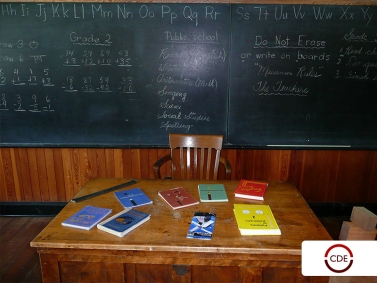 The Centre for Development and Enterprise (CDE) and the National Education Collaboration Trust (NECT) hosted a dialogue on strengthening teacher professionalisation yesterday 31 July, with Minister of Basic Education Angie Motshekga as keynote speaker.
The Centre for Development and Enterprise (CDE) and the National Education Collaboration Trust (NECT) hosted a dialogue on strengthening teacher professionalisation yesterday 31 July, with Minister of Basic Education Angie Motshekga as keynote speaker.
Speaking to education experts, leaders in business, government, civil society and the media, Ann Bernstein CDE’s executive director said “we meet at a time when the country is in crisis on every front imaginable.
For the past 3 years, CDE has been focusing most of its attention on how this country can deal with poverty, unemployment and inequality. Throughout this work, the crisis in education is a major constraint on accelerated growth and employment.”
Welcoming the CDE report, Minister of Basic Education Angie Motshekga said that the development of professional standards plays a key role in the teacher education framework and that teaching should be seen as a highly valued professional.
Sizwe Nxasana, Chairman of National Education Collaboration Trust (NECT) said it was important that the South African Council for Educators (SACE) was reformed as it played an important role in professional standards for teachers and in dealing with issues of professional conduct. “If SACE were to work properly you can imagine the benefit that we could have for what happens in the classroom, the conduct of the teachers, what is expected of them, even before they get into the teaching professional”.
Dr Nick Taylor, education expert who co-wrote the CDE report, spoke on the importance of tackling corruption. “Nothing is happening about the Ministers Task Team report on the selling of teacher posts. Corruption flourishes when nothing is done about it.”
“Teachers, principals and circuit managers are being paid to do a job they are not doing, that is a form of corruption, everybody knows it’s happening, nobody does anything about it”, he said.
CDE released its latest report on teacher professional standards (TPS) against the backdrop of an ongoing crisis in South African education. This is the 10th CDE report on teachers in South Africa over the past five years. It builds on previous CDE research looking at teacher supply and demand, teacher evaluation and Initial teacher education.
CDE’s research findings provide insights into the conditions under which Teacher Professional Standards might serve to raise school performance and address three key deficiencies in the South African education system:
- Many teachers are ill-prepared for teaching,
- They are not accountable, and
- They do not receive enough support and training to equip them as competent educators.
From its analysis of the South African education system and its research on the development of TPS in six other countries, CDE identifies lessons for South Africa and priorities for government action.
CDE recommendations:
- Given the lack of basic accountability and the significant degree of wrong-doing throughout the education system, the DBE and provincial departments should take bold steps to hold teachers accountable for what they are able to do.
o For example, keeping strictly to the school timetable, because teachers frequently and habitually skip classes. Simply by instituting this level of managerial accountability and requiring teachers to be in class when they should, learners will have 40 percent or more, teaching and learning time. Although such moves are likely to be met with union resistance, government must move from rhetoric to action on this matter, using the deadlock–breaking mechanisms provided for by law.
- The second priority is to concentrate on teacher preparation: the selection of students, curricula of initial teacher education programmes and teacher qualification requirements, as well as an induction process in schools before full registration as teachers.
- The most critical initial focus for improving learning outcomes is teaching student teachers the most effective forms of reading instruction, something to which South African universities pay little attention at present.
- The third priority is to improve the nature and quality of support, training and professional development opportunities for teachers and managers so that they are able to perform at higher levels and improve learner achievement.
o The weak institutional functionality and limited capacity of many teachers, managers and officials is because they have not received the training and support they need. Government must provide them with high-quality training and meaningful professional support and development opportunities to enable them to improve their performance. Unless this happens, they cannot be held accountable for what they have never been taught or had the opportunity to learn.
ABOUT THE CENTRE FOR DEVELOPMENT AND ENTERPRISE
The CDE is an independent policy research and advocacy organisation. It is one of South Africa’s leading development think tanks, focusing on critical development issues and their relationship to economic growth and democratic consolidation. Through examining South African realities and international experience, CDE formulates practical policy proposals outlining ways in which South Africa can tackle major social and economic challenge.



